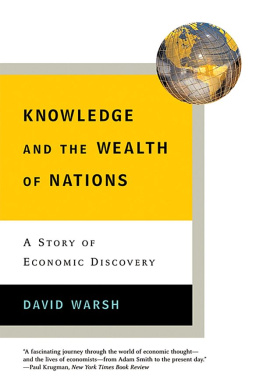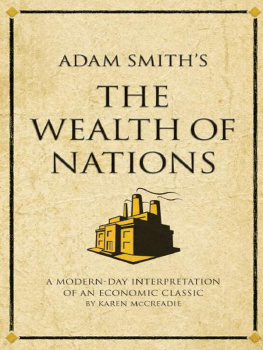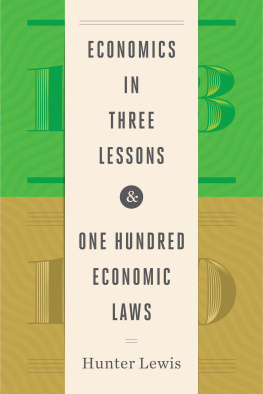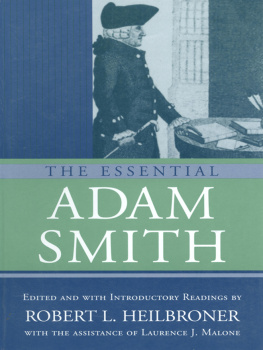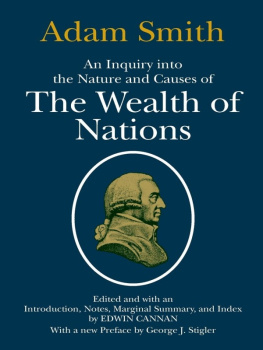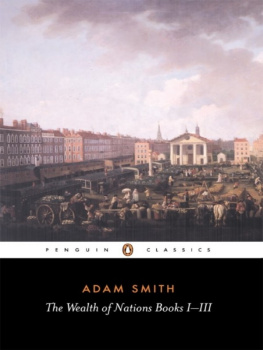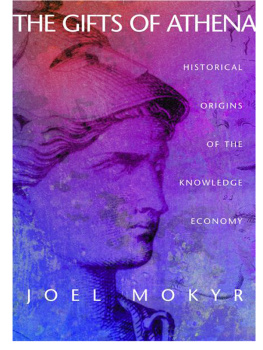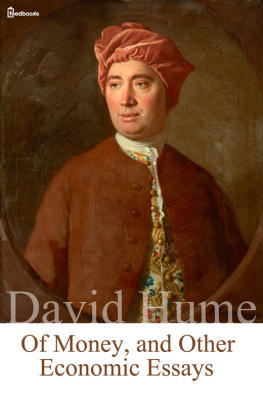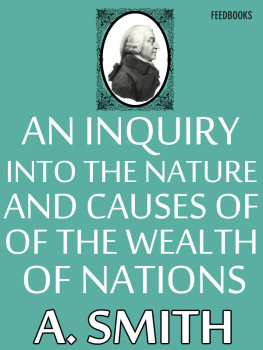KNOWLEDGE
and the
WEALTH of NATIONS
A Story of Economic Discovery
DAVID WARSH

W. W. NORTON & COMPANY
New York London
Copyright 2006 by David Warsh
All rights reserved
For information about permission to reproduce selections from this book, write to Permissions, W. W. Norton & Company, Inc., 500 Fifth Avenue, New York, NY 10110
Library of Congress Cataloging-in-Publication Data
Warsh, David.
Knowledge and the wealth of nations: a story of economic discovery / David Warsh.1st ed.
p. cm.
Includes bibliographical references.
ISBN: 978-0-393-06636-4
1. EconomicsResearchUnited States. 2. EconomicsStudy and teachingUnited States.
3. EconomicsUnited StatesHistory. 4. EconomistsUnited States. I. Title.
HB74.8.W37 2006
330.0973dc22
2005033677
W. W. Norton & Company, Inc., 500 Fifth Avenue, New York, N.Y. 10110
www.wwnorton.com
W. W. Norton & Company Ltd., Castle House, 75/76 Wells Street, London W1T 3QT
To the memory of
E. LAWRENCE (LAURY) MINARD III,
19502001
T he construction of a model, or of any theory for that matter (or the writing of a novel, a short story or a play) consists of snatching from the enormous and complex mass of facts called reality a few simple, easily-managed key points which, when put together in some cunning way, become for certain purposes a substitute for reality itself.
E VSEY D OMAR , Essays in the Theory of Economic Growth
T ruth emerges more readily from error than from confusion.
F RANCIS B ACON , Novum Organum
CONTENTS
PREFACE
T his book tells the story of a single technical paper in economicsthe events leading up to its publication in 1990 and some subsequent changes in our understanding of the world. My subsidiary aim is to convey something about how economics is done today in universities, for it is there, not in central banks or government offices or Wall Street firms, that the most important work takes place.
Between 1979 and 1994 a remarkable exchange unfolded among economists in hard-to-read technical journals concerning economic growth: what it is, what makes it happen, how we share it, how we measure it, what it costs us, and why it is worth having. Such was the sense of novelty that emerged from this exchangeof learning how to understand something for the first time, to write it down in such a way as to perpetuate the understanding of it, of discovery , in other wordsthat this literature quickly became known as new growth theory. Many persons made contributions. A new generation rose to prominence in the field. Yet the issues themselves and the manner of their resolution remain unfamiliar to a wider audience.
I am an economic journalist, for many years a newspaperman, not an economist or a historian of economic thought. My mathematics is rudimentary, but my English is good, my skepticism fluent, and my background knowledge of economics fairly extensive from having followed the field for many years. The book is written from an outsiders point of viewan appreciative outsider, but one who hasnt altogether surrendered his skepticism. In other words, I am a civilian and a believer in civilian control.
Why focus on a single skein of work? Progress in economics these last thirty years has been rapid. Its scope has broadened and its generality increased. There are a great many stories to report. The new growth story first caught my eye because I was interested in specialization and the growth of knowledge. Ive come to see it since, however, as a representative storyan illustration of how mathematics became the working language of modern economics, of why its practitioners deem their formal methods to have been such a success.
The new growth story shows how economic discovery occursin intense intellectual competition among small groups of researchers working in rival universities. From this competition emerge occasional transformations in understandings of the world, reflecting simultaneously the cumulative work of generations and the border-crossing journeys of research partners or, perhaps, a single person. Gradually these transformations make their way outward, like ripples spreading from a pebble thrown on a pond, until what originally was their understanding becomes our understanding as well.
They will be missing altogether a good story (and an important lesson) in their haste.
Many of the more public events in this story I covered as they occurred, often in meetings in stuffy hotel rooms on sunny days and in the conversation afterwardsa strange kind of news indeed. It is humbling to look back and see how slowly the significance of these developments dawned on me, and how much longer it took me to put it into words on paper. But then, if it had been obvious, it wouldnt be news.
I talked to many people along the way. Almost all of them talked back, with varying degrees of candor. My thanks to all. Economists are a good lot, and they like a yarn as well as the next person. Only toward the end did I realize how much they were interested in keeping secret. Economists have their foibles too.
INTRODUCTION
O ne of the oldest chestnuts in the inventory of our common sense is this: Give a man a fish, and you feed him for a day. Teach a man how to fish, and you feed him for a lifetime. To which it now must be added, invent a better method of fishing, or of farming fish, selling fish, changing fish (through genetic engineering), or preventing overfishing in the sea, and you feed a great many people, because these methods can be copied virtually without cost and spread around the world. Of course, depending on the circumstances, your invention can make you rich as well. New ideas, more than savings or investment or even education, are the keys to prosperity, both to private fortunes, large and small, and to the wealth of nationsto economic growth, in other words, with its incalculable benefits for all. In the background are the intricate rules of the game that we summarize as the rule of lawand politics.
Yet it was not until October 1990 when a thirty-six-year-old University of Chicago economist named Paul Romer published a mathematical model of economic growth in a mainstream journal that the economics of knowledge at last came into focus, after more than two centuries of informal and uneasy presence in the background. The title of the paper was at once deceptively simple and intimidating: Endogenous Technological Change.
The thirty-two-page article in the Journal of Political Economy observed all the ordinary conventions of scientific writing: passive voice, mathematical analysis, modest claims. There were careful citations of earlier work in the same tradition, especially the paper which it sought to supplant and on which it sought to build, A Contribution to the Theory of Economic Growth, published in 1956 by Robert Solow.
The first paragraph contained a sentence that was initially more puzzling than not: The distinguishing feature oftechnology as an input is that it is neither a conventional good nor a public good; it is a nonrival, partially excludable good.
And thereupon hangs a tale. For that particular sentence, written more than fifteen years ago and still not widely understood, initiated a far-reaching conceptual rearrangement in economics. It did so by augmenting the familiar distinction between public goods, supplied by governments, and private goods, supplied by market participants, with a second opposition, between rival and nonrival goodsbetween goods whose corporeality makes possible their absolute possession and limited sharing (an ice-cream cone, a house, a job, a Treasury bond) and goods whose essence can be written down and stored in a computer as a string of bits and shared equally by many persons at the same time practically without limit (a holy book, a language, the calculus, the principles of design of a bicycle). Inevitably, most goods must consist of at least a little of each. In between these extremes lie myriad interesting possibilities.

